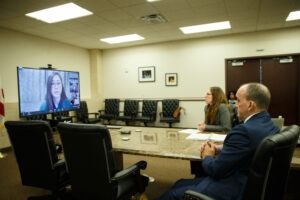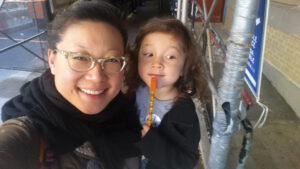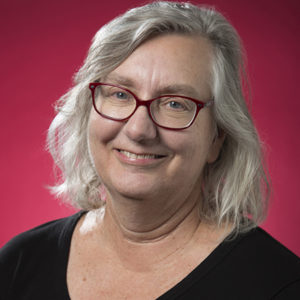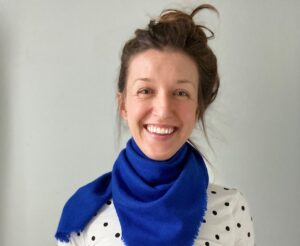Today is International Day of Women and Girls in Science, an occasion established by the United Nations, to celebrate the achievements and contributions of female scientists, which have historically been overlooked — like Rosalind Franklin, who, for many years, went uncredited for her crucial contribution to the discovery of DNA’s structure.
While gender equality in science, technology, engineering, and math (STEM) fields has improved in recent decades, globally, less than 30% of researchers are women, according to the UNESCO Institute for Statistics. In the United States, women make up just 28% of those working in science, technology, engineering, and math (STEM) industries.
At the Innocence Project, we are lucky to have several female scientists from all different backgrounds on our team. Each brings their unique perspective to the work of our policy, research, and legal teams, and helps ensure that everything we do is rooted in science.
Today, in solidarity with all women working in STEM fields and the young girls who dream of becoming scientists, we’re sharing the powerful stories of four inspiring female scientists at the Innocence Project.
Susan Friedman, senior staff attorney

Innocence Project Senior Staff Attorney Susan Friedman conducting a direct examination of a DNA expert via Zoom on behalf of Innocence Project client Robert DuBoise. (Image: Casey Brooke Lawson/The Innocence Project)
Advice to women and girls: Find what you love and don’t let anyone stand in your way or persuade you that you aren’t smart enough, good enough, or capable enough to do it.
I was always a super curious kid. I loved figuring out how things worked. But I think what really lead me into science is that my mom passed away when I was very little — I was 6 — and I didn’t really understand what happened to her at the time. That led me to really want to learn about science and, initially, about cancer development. I wanted to help people through science.
In high school, I was in a special science program that was predominantly male. And so when I was going to college, I made a purposeful choice to go to a women’s college, Mount Holyoke. I was really lucky in that most of my professors in college were these really smart, badass women with PhDs from Harvard, and all my classmates were smart, and I felt like women could do anything and everything.
I went to graduate school at Mount Sinai Medical School and then law school thinking I would either do something in health care like work for the FDA (U.S. Food and Drug Administration) or regulatory work around pharmaceuticals. I didn’t think I would be a criminal defense attorney.
During my first year of law school, the National Academy of Sciences released a major report on forensic science and it just totally blew my mind. Because of my background as a biochemist, I had done DNA testing and all of that stuff, and I got really into the report. It just shocked me that there had been such a lack of science in the criminal legal system. I was hooked.
I think having that science background has been a tremendous help and makes me a better lawyer because almost every case that I litigate involves DNA evidence or other evidence like fingerprints. So I’m always reading scientific studies and looking at the data, and it’s a huge benefit to have a science background because it’s alarming how few people in the criminal legal system actually understand the science.
It’s getting better now, but when I first got out of law school, I was really surprised that there are people prosecuting people using DNA evidence without actually understanding what that evidence means. And frequently what that meant is that they would accidentally misstate the evidence. But I think the reality is that if you are going to work in the criminal legal space, then you have an ethical obligation to understand these concepts and human biology, you need to take continuing legal education, you need to read the papers, take classes, and engage with the material.
Sarah Chu, senior advisor on forensic science policy

Sarah Chu, Innocence Project senior advisory on forensic science policy, with her daughter (Image: Courtesy of Sarah Chu)
Advice for women and girls: Don’t second guess what you’re passionate about and if STEM is what excites you, try to seek mentors who are like you, and if you can’t, take advantage of any mentorship opportunities you have.
Growing up my parents kind of set the expectation that I would either become a doctor or an engineer. In Taiwan, my mom was a physics and calculus teacher and my dad was a nuclear engineer. Then we moved to the Silicon Valley, so growing up I was surrounded by people in the tech sector, and there was kind of an expectation that you were going to do something STEM-related.
But I knew from an early age that I would have to work hard to do that. When I was in elementary school, my mom went back to school to get an engineering degree to get into a second career. And one night I saw her crying because a professor told her she was taking up a seat that should have been a man’s. He said he was reserving A’s in his class for the men because they were the ones who were going to do something with their degrees.
My mom told me that as a woman, and as an Asian person, that I would need to work twice as hard to be considered on equal par with a white man in the world. She went on to excel in her field, and what I really learned from her was to be persistent and to not let my own insecurities or imposter syndrome get in the way of taking advantage of an opportunity, because a man wouldn’t.
I started off pre-med and then I realized I really couldn’t stomach the gory stuff. So I thought then my path would be getting a PhD and doing research, and I joined a plant lab. There I had the formative experience of discovering something that contradicted general knowledge about how plants respond to droughts. I think at most labs, the principal investigator would have just told me I did the experiment wrong as an undergrad. But the postdoc I was working with said let’s do a few more repetitions, and we eventually realized we were finding something new. And so we got to publish a paper establishing our methodology and technique.
That experience really stuck with me and that really gave me a framework for thinking about forensic science in my work now. In forensic science, we have these disciplines where there’s a sense of what the science is, but it’s so important to actually do the testing and to validate those methods because it impacts people’s lives.
After that I worked in epidemiology, where I realized that what I love is developing knowledge and being at the cutting edge of something and doing something that impacts people. For a while I taught chemistry and physics in the New York City school system, but when I understood the challenges that my students were facing every day — like having to take care of four younger siblings or dealing with traumatic interactions with law enforcement — I thought that demanding that they turn in worksheets and homework was so secondary to all that.
I wanted to find a way to use my science degree and to do advocacy work that would make their lives better. Science has been my tool for realizing my passion for criminal justice reform. In order to do justice in this system, people in the criminal legal system need to understand the science, and we’re starting to see that with judges taking a more sophisticated look at evidence and how public defender offices across the country now have forensic units.
It can be so easy to dismiss something when you don’t understand it, but today with where we are that can no longer be what we do in the system.
Glinda Cooper, director of science and research

Glinda Cooper, Innocence Project director of science and research
My job is really about making sure that our research is sound. That the data that we use is sound and accurate and that we apply the principles of science to our work. I think people have a tendency to cherry-pick data — it’s kind of human nature to hone in on the part that makes sense to you. But what we work hard to do is make sure that we’re comprehensive in our approach to looking at a study. It’s important to be aware of everything that data or a study is showing, that there is nuance — and that’s not just in science, but information, politics, everything.
But what I love about science is that it’s concrete. There are formulas, there are laws about nature and how it works, like gravity. I just find that very satisfying.
When I went to college, I wanted to major in chemistry and there were no women faculty members. The only female graduate students were nuns and it was like this message that you could only be in science if you forwent any other kind of relationship. There were professors that would make derogatory comments about women in large lecture halls and they were just accepted — no one even blinked an eye.
I went on to work in epidemiology, which actually generally has a lot more women. I think a lot has changed in 30 years and I hope that it’s a different environment for women studying science today, and that we don’t take that progress for granted.
Vanessa Meterko, research manager

Vanessa Meterko, Innocence Project research manager (Image: Courtesy of Vanessa Meterko)
Advice for women and girls: The essence of science is curiosity. Embrace your curiosity and just try things.
When I was a kid, I wanted to be a detective and obviously I’m not that today, but I think the desire behind that was an interesting in solving mysteries and I think that science is a way to do that — to solve mysteries of the natural world or human behavior.
I went to grad school and studied forensic psychology where I studied the phenomena of false confessions and I was really fascinated by that. After that I joined the Innocence Project team, almost 10 years ago, where my work is essentially using science to advance justice.
On a day-to-day basis that means collecting and organizing information about wrongful conviction cases — so literally reading through police and laboratory reports and trial transcripts and post-conviction motions and pleadings to understand patterns of wrongful convictions. And I also keep track of the academic literature around things like false confessions and cognitive biases in police investigations so that our work can be informed by the latest research.
I think this research is really important in explaining things that are hard for people to understand. Like I think it’s hard for people to wrap their head around why someone would falsely confess to something horrific that they didn’t do, but when you break it down to some of the underlying principles of psychology and what’s happening it becomes a lot easier to understand how it happens and why it happens more often that people think.
There are so many different ways we can contribute to advancing fairness and equity in the justice system, and scientists really are a part of that, and I think that’s important for people to know.
This post was originally published on Radio Free.